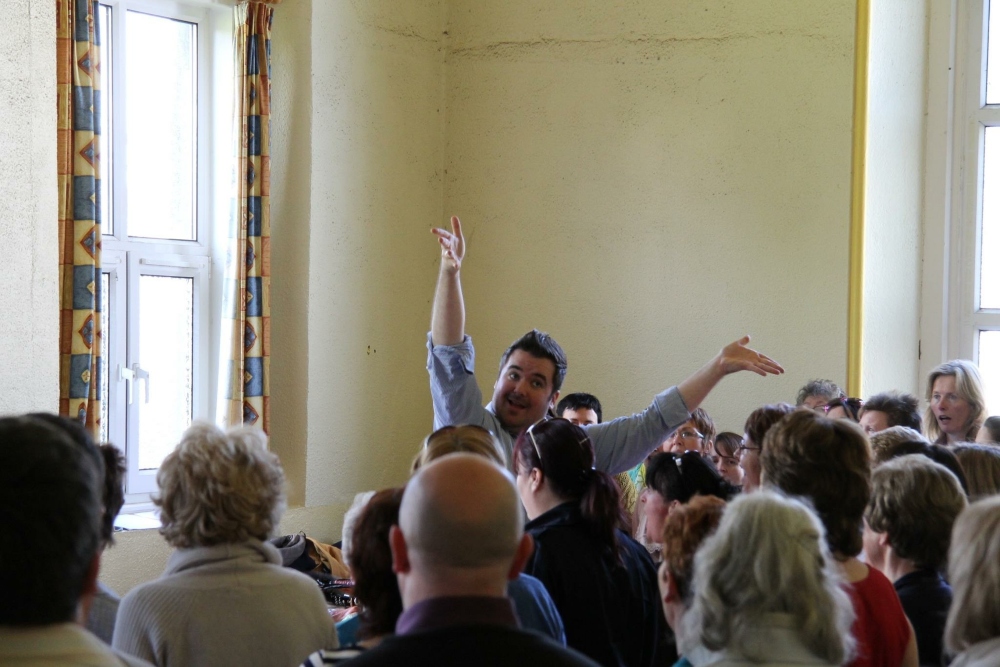Podcast Ep 65: Halo Business Angel Network all-island director John Phelan reveals that the network is expanding beyond Irish shores to London, Silicon Valley, Dubai and Singapore.
The unsung heroes and heroines of the Irish venture funding world – our business angels – have played a crucial role in bringing innovative Irish businesses to the next level. J
John Phelan of the Halo Business Angels Network (HBAN) reveals how the organisation is spreading its wings to create outposts in the UK, Europe, Asia, the Middle East and the US.
“€360m has gone into nearly 600 deals since we started in 2007”
All across the island of Ireland and now overseas, seasoned business people are playing a vital role in filling a gap in Ireland’s venture funding scene. Mostly through syndicates, they are the fuel that is driving many of Ireland’s most innovative and iconic companies to the next level.
On the wings of angels
In 2020 more than 100 new angel investors joined the ranks of HBAN, a joint initiative of Enterprise Ireland, InterTradeIreland and Invest Northern Ireland, and a new Kerry Angel Network group was formed. Examples of successful syndicates include HBAN’s Bloom Equity, Boole Investment Syndicate and the South East Business Angel Network.
Business angels in Ireland invested over €14m in start-ups across the island of Ireland in 2020. Throughout 2020 HBAN’s angels invested in 59 companies during 2020, with an average deal size of €250,000 from angel investors. These funds leveraged a further €40.5m from Enterprise Ireland and other investors. Categories of start-ups that were most commonly invested in included medtech, ICT and manufacturing.
During 2020 HBAN angel investors celebrated exits of up to 10 times their initial investment. Companies like Iconic Translation Machines, Payslip, Decawave and Finovation have all raised at least seven-figure sums while in the last five years notable exits have included Phorest, iCabbi and Embo Medical.
Speaking with ThinkBusiness, Phelan recalled the early days of HBAN when it was established on a pilot basis in 2007. If anything, the journey so far can be best described as an epic tale of patience and perseverance. “I remember going to meetings where we had three companies in a room, who didn’t really deserve to be getting any money at all. But on the other side of the table we had three investors who really didn’t have much money at all and probably weren’t going to invest either.”
The results to date boil down to how funding from angels has been leveraged by the companies they have backed. “Since then we have cumulatively done nearly 600 deals and more than €125m has gone into those deals from our network. On top of that another €240m has gone in, so €360m has gone into nearly 600 deals since we started in 2007.”
The best way to think about the work of angel investors is that it is not just about the money that can be also leveraged, it is the skills, expertise, experience, knowledge and connections that each investor can bring to the table for the companies they choose to back.
The rise of angel investment also offers an opportunity to change the narrative on investor stereotypes with rising numbers of women investors joining the investor ranks.
“It is evolving, it is changing quite a bit. Everybody recognised in the last five years that ‘stale, male and pale’ [investor stereotype], that lack of diversity, that lack of dynamism and bringing new thoughts to the table was holding everybody back. We put our hands up and said we were pretty crap in terms of the numbers of female angels we had. Three or four years ago around 3pc of our investors were females who were active. We have brought that up to 11pc.”
Phelan said the ambition is to bring the numbers of participating women investors up much further. “Because it’s good for everybody. It’s not just good for female angels, it’s good for all of the investors and its good for all of the companies.”
Typical members of the angel investor cohort in Ireland, Phelan explains, tend to be split between successful entrepreneurs who have built and sold companies and who want to offer “smart money” investment to promising companies and successful Irish executives who have worked overseas with multinationals and who want to invest in early-stage companies and connect them to their networks.
He said the connections that these investors can bring to young companies is as valuable as the cash they bring to the table.
Cashing out with a 10X return
While the impact of the pandemic slowed down activity in 2020, prominent exits in the prior year saw HBAN angels cash out with up to 10 times their original investment.
Dublin City University spin-out Iconic Translation Machines was acquired by London-listed RWS Holdings in June 2020 for $10m. The company, which specialises in language technology software, was established in 2013 with the backing of angels from HBAN’s Bloom Equity and the Boole Investment Syndicate.
In March 2020, Mayo-based fintech start-up Payslip raised an additional €2.9m in a Series A funding round led by Frontline Ventures. Some HBAN investors from the Bloom Equity syndicate exited with a four-fold return on their investment, while others have continued to follow their investment. Payslip has since raised €8.3m and has revealed plans to create 150 new jobs.
In January 2020, computer chipmaker, Decawave, was acquired by Nasdaq-listed semiconductor company Qorvo for €362m. The Dublin-based company was founded in 2007 and investors from Bloom Equity and HBAN’s Investor Forum were amongst the hundreds of international angel investors with a stake in the company. Following the acquisition, HBAN’s angels received returns of between four and eight times their investment.
Irish financial services company, Finovation, was bought by UK-based pensions and insurance firm Legal & General in August 2019, for an undisclosed sum. It was established in 2014 with the support of business angels from Bloom Equity.
What started as a trickle of investors has evolved into an array of sophisticated syndicates focused either on sectors like medtech or regions like the south-east, Kerry or Northern Ireland. This is now evolving into an international network with HBAN establishing outposts in San Francisco, Singapore, London and Dubai.
“The London syndicate has done £2m worth of investment into nine deals in the last two years. We’re starting to see some really good traction there. We have a pilot in Dubai and Singapore is doing quite well as well.”
The international aspect of HBAN and the potential to drive overseas funding into promising young Irish companies bodes well for the future.
“We’re now getting more people on the calls from Japan, from Singapore, from the west coast of the United States,” Phelan said.
By John Kennedy (john.kennedy3@boi.com)
Published: 10 June 2021






